The question of what are the “most reliable motorcycle brands” is a common-asked, but difficult-to-answer one. It’s plagued with opinion, bias, and little data.
But the question of motorcycle reliability is an important one. No matter how great the ride, being stranded can really ruin an experience. So knowing whether your brand of motorcycle — or specific model — is a reliable one is a very important metric.
Here I’m compiling data from a number of different sources to try and zone in on an answer to what the most reliable motorcycle brand is — and why.
This was originally published in 2021, but has been updated with a huge new data set in 2023, with further analysis.
Are you obsessed with motorcycles?
Well, I am. That’s why I created this site — as an outlet. I love learning and sharing what others might find useful. If you like what you read here, and you’re a fraction as obsessed as I am, you might like to know when I’ve published more. (Check the latest for an idea of what you’ll see.)
Opinion — A Survey of Owners on Facebook
In a poll on one of the Facebook groups I used to frequent, someone innocently asked “Which manufacturer do you consider to build the most reliable bikes?”

This was an innocent (and frequently asked) question, but this time there were nearly 500 responses! I thought it was so interesting that I started to collate it all into a Google Sheet.
General disclaimer: This isn’t answering the question of “What is the most reliable motorcycle”. This is just collective opinion, which is riddled with bias — see the section on bias below. So think of this as “a quantified summary of people’s subjective opinions”.
Here’s a pie chart (which my former bosses back at The Firm are screaming at me about) summarising everyone’s responses.
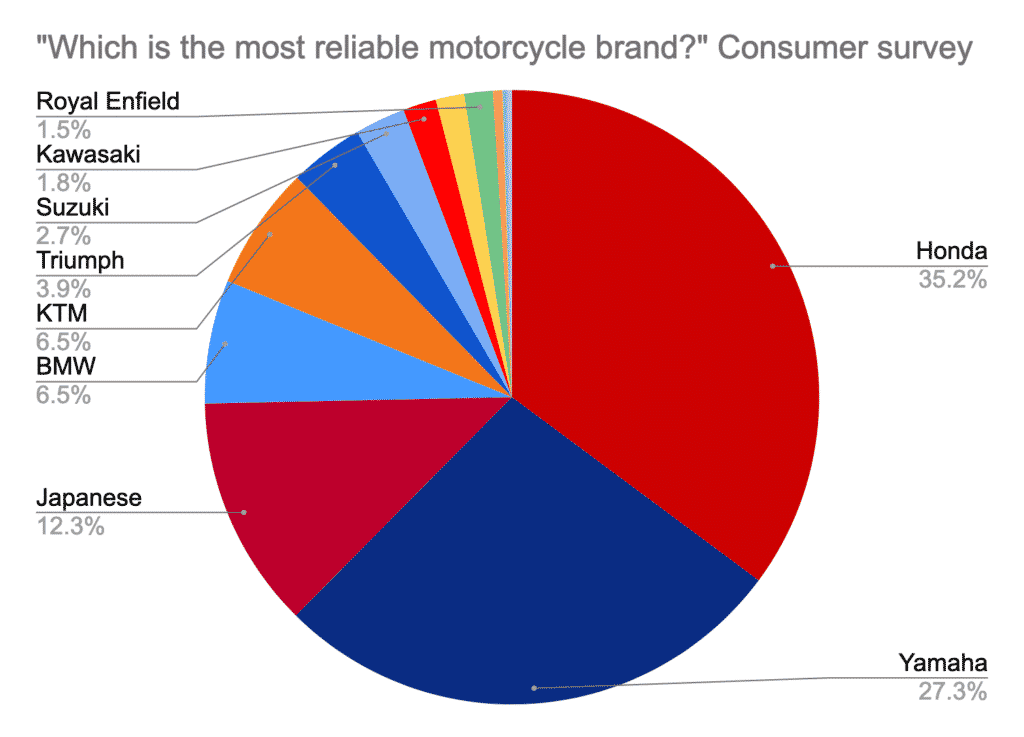
In a nutshell, Honda and Yamaha were the most-named most reliable motorcycle brands.
“Any Japanese” motorcycle was mentioned after that. That would include Honda and Yamaha as well as Suzuki and Kawasaki.
Together, the big four Japanese Brands — Honda, Yamaha, Suzuki, and Kawasaki — make up ~80% of respondents’ answers to the question of the most reliable motorcycle brand.
Fewer people specifically mentioned Kawasaki and Suzuki, but some did (and usually together with the other Japanese brands).
There were some mentions of the European/British brands BMW, Triumph, KTM, Ducati, and a couple of others.
But it should be pointed out that a few people mentioned KTM and Ducati ironically (with a wink or laugh emoji). I didn’t count those. But they almost count as anti-votes.
Data — Rental Towing Events
One interesting pool of data that spans brands is rental returns from our friends at Riders Share, a service that lets you rent out your bike, or find other local rentals (great way to try out bikes you’ve had an itch to try but don’t want to own or can’t get a test ride on).
Try out a Motorcycle — For less than you’d think!
Want to ride an awesome bike you’ve always had your eye on for a day or two and really put it through its paces? Try renting one from Riders Share! Get $25 off your first rental with that link.
Riders Share shared operational data for many tens of thousands of successful rentals over the past few years for a huge range of motorcycles. A proportion of those rentals, however, resulted in incidents in which a motorcycle needed to be towed. I think of this as one sign of unreliability — an unreliable bike is a bike that leaves a rider stranded. (There are various definitions — see the section on definitional vagueness below.)
Because rentals are very short term — often just a day, and rarely more than a week — I found it useful to analyse the data in terms of “incidents per thousand rental hours”.
General disclaimer — You can use data to show anything. Data sets are twisted by bad operators to suit their needs. An analysis depends vastly on the data collection source and method, and then the analysis method. I’m trying to present an impartial view — but the results may still surprise you!
On the analysis:
- I excluded brands where there were very few rentals. I also excluded scooters. (Scooters are almost a separate question from motorcycles — they have very different purposes and target markets.)
- Also, I’m showing confidence intervals (a “range of values”) using a confidence interval based on the standard error. Some brands (Harley-Davidson in particular) get more rentals, which means the confidence interval is narrower.
One notable exception from the below list is Royal Enfield. Based on the data from Riders Share, Royal Enfield has a staggeringly high tow rate of 2x to 6x more often than other brands (on average 4x the average). This is based on a much smaller sample of rentals, though, so more data is needed to show whether it’s valid.
Finally, bear in mind that peer-to-peer rentals are a subset of motorcycles (generally older, though well-maintained ones), of renters (visitors from out of state / the country, who don’t even know the bike well, like me!), doing unusual things with bikes, taking them to places they don’t normally ride, with luggage and so on. A towed bike may be one that a rider crashed out of inexperience with the bike, the road, or the area’s traffic norms.
OK, here’s how the data shakes out.
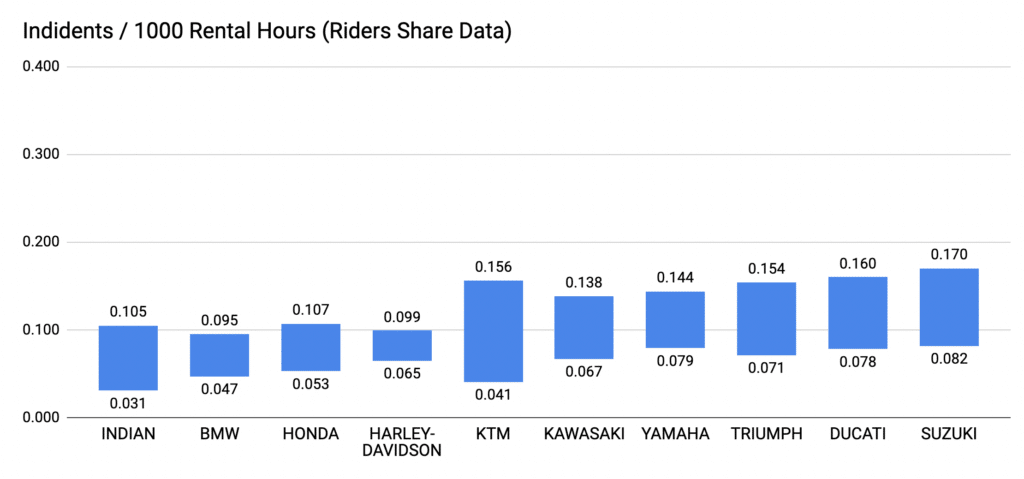
So, what’s going on here? The first thing worth mentioning is that all brands of motorcycles have similar reliability (per this definition), within a very narrow band. The bottom of Suzuki’s confidence interval is still above the top of BMW’s.
And secondly, overall, motorcycles are very reliable! This means there’s one towing incident per 10,000 rental hours (like ownership hours, but assuming you ride a lot). So if you ride generally every day, you’ll be towed about once every three years on average. Sounds about right to me. Some people are never towed. I’ve sometimes pushed a bike to a gas station. And I’ve been towed once in my life when a starter motor failed on a Ducati, and it was uphill all the way home.
Secondly, the data contrasts with people’s opinions of reliability. Mostly, BMW, Harley-Davidson, and Ducati aren’t as patently unreliable as people think. (There weren’t enough KTM rentals to include them here.) Why is this? There could be any number of reasons — older riders, older renters, or Harley renters being more gentle or experienced riders in general.
I also think there’s an element of ownership vs rental bias (I have a section on bias below). If I paid $30K for a bike, I’d be mad if there were one bolt loose. If I’m renting, I wouldn’t care about much as long as it doesn’t affect my ride.
And finally — a quick read of this may say “So, Suzuki seems super unreliable”. Again, snap judgments are bad. Look at the confidence intervals. Even in this amount of data, there’s not enough to conclusively say that. I pored over it and differences seem within the margin of error.
Consumer Reports Study
There was a study done in 2015 by Consumer Reports that surveyed thousands of motorcycle riders on the same question of reliability. This is another question of subjective impression.
They surveyed over 11,000 subscribers and the results were that the most reliable motorcycle brands were (in order): Yamaha, Suzuki/Honda (tied), then Kawasaki.
The way they assessed reliability was to estimate the mean time to failure — asking the question of whether in a given four-year period their motorcycle had broken down. This is one definition of reliability that’s very important.
Then they assessed the percentage of motorcycles in each brand that had broken down in a four year period, adjusting for mileage and age. On that basis, they concluded that the most reliable motorcycle brands are the Japanese brands.
Another thing they concluded, by the way, is that cruiser motorcycles are typically the most reliable. This is really interesting to me because they’re often the least complicated motorcycles, and the parts of motorcycles that are most likely to fail, per consumer reports, are electrical components.
Per the Consumer Reports survey, these are the parts that tend to malfunction:
| Repaired parts | Percent of repaired motorcycles |
|---|---|
| Electrical system | 24% |
| Accessories | 19% |
| Brakes | 18% |
| Fuel system | 13% |
| Clutch | 8% |
| Body panels | 6% |
| Drive system | 6% |
| Valvetrain | 5% |
| Front suspension | 5% |
| Cooling system | 4% |
| Piston | 4% |
| Transmission | 4% |
Consumer Repairs also did survey on motorcycle satisfaction. Per their findings, this is how likely owners of various brands are to buy another motorcycle of the same brand:
| Motorcycle brand | Likelihood of buying same motorcycle brand again |
|---|---|
| Victory | 80% |
| Harley-Davidson | 72% |
| Honda | 70% |
| BMW | 68% |
| Can-Am | 67% |
| Ducati | 66% |
| Yamaha | 65% |
| Triumph | 63% |
| Kawasaki | 59% |
| Suzuki | 58% |
Harley-Davidson owners were quite happy, with 72 per cent responding likewise, trailed closely by Honda at 70 per cent. All other brands were below 70 per cent.
Another interesting thing that CR pointed out is that asking motorcycle owners about comfort gets responses closely aligned with overall satisfaction. So if you ask “How comfortable is your motorcycle?” you’re likely to get an answer which tells you how happy they are with it. This gels with me… many Victory and Harley Davidson (and Indian, not in their survey) motorcycles are like armchairs.
Motorcycles are luxury items. These days, few people use full-size road motorcycles for anything other than vacations, weekend scratching, track work, and long-distance travel. A small scooter or a car is always a more practical choice.
So I expect people to buy motorcycles for love, not because they’re a few percentage points more reliable, but it’s also good to be armed with reasonable data in your head.
Does this information make sense?
Whenever you ask someone’s opinion, including about the most reliable motorcycle brands, their answers are riddled with bias. The most common types of bias are
- Confirmation bias — if you expect a motorcycle to fail, and it does, you’ll think “I knew it!”; and if you expect it to be reliable, and it fails, you’ll think “That was bad luck” and discard the data
- Recency bias — a motorcycle that failed on you this morning will seem like more of a lemon than one that failed a few times ago twenty years prior (which you might even have forgotten about)
- Halo effect — a motorcycle you really love riding or owning will always give you a more positive feeling than one you don’t love.
Those are actually just a few kinds of bias. The fact that we’re all riddled with biases (because we humans are just squishy blobs of organic goo, not machines) is why we try to rely on data.
Data is never perfect either. In fact, some of the data here is just asking people for opinions. But sometimes, collective opinions — when correlated with other sources — can get closer to the “truth” about the most reliable motorcycle brands.
Let’s get anecdotal — the following doesn’t prove anything. But it’s an example of personal experience, of which you may have your own.
One person I know has a motorcycle rental business. They rent out touring bikes to visitors from BMW, Triumph, and Honda, among a few other brands. Per his account, the only motorcycles to never have problems are the CB500X models they have. It could be that people ride them gently, but whatever the reason, that’s the output.
Here are the failures I’ve had on my Ducatis and Hondas, of which I’ve had enough to form a small amount of personal data.
| Motorcycle & years owned | Repairs needed (aside from regular maintenance) |
|---|---|
| 1981 Honda CB900 Bol D’or (2001-2007) | Slightly weeping fork seals |
| Ducati Monster M900 | Failed stator coil (did not start) Failed regulator/rectifier (did not start, blew headlamps) |
| 2003 Ducati Multistrada 1000DS | Failed oil pressure sensor (limp mode back to mechanic) |
| 1988 Honda Hawk 650 | – |
| 2003 Honda CB900 919 | – |
| 2007 Ducati 1098S Superbike | Failed fuel level sender (I ran out of gas as there was no warning) |
| 1998 Ducati Supersport 900 | Failed crank position sensor (did not start) |
| 2001 Honda CBR600F4i | – |
| 2014 Honda VFR800 | Cover of the heated grips button fell off |
I have had so many problems with old Ducatis that I’m taking a break and going just Japanese. Other brands may be more reliable, but their parts are more expensive. So in the chance of a failure, a repair will always cost more.
Other owners of Ducati motorcycles talk about it as being a love-hate relationship. It’s mostly love. But even newer Ducatis fail on people (see this 2023 thread on the Ducati Streetfighter V4’s programming error that can result in a “crawl home” state). While they make amazing bikes that can serve people wonderfully, to date, Ducati has not earned the reputation of being one of the most reliable motorcycle brands.
A good way of assessing whether a motorcycle is very reliable is to browse forums specific for a motorcycle. Join the Facebook groups and watch for what people say. If it’s all talk about tyre pressure, accessories, and what oil to use, then it’s a good sign. But if people mention things like “I’ve got the famous xyz error” or “bike won’t start” and many people rush to suggest common problems, then you may have found a problematic bike.
(Note that I don’t think you can ask “Is this bike reliable” or “Are there common problems”. It’s a leading question — and a polarising one. Usually, I haven’t seen useful answers to those questions. Some will mention a few, and then more than one person will say “Four bikes, 100,000 miles, no problems”, and you’re left wondering where the truth lies.)
“But my bike is super reliable and doesn’t deserve this reputation!”
It’s interesting to me when people cite their specific experiences. It highlights one of the above examples — confirmation bias.
Here are three things to bear in mind:
- “Reliable” is poorly defined and very vague. Does it mean a bike where nothing breaks, ever? Or one that just doesn’t fail catastrophically, leaving you stranded? People sometimes discount trivial or small faults. A button failing is very different to a crankshaft failing. So you don’t know what people are not counting as a “fault”.
- We mature with experience. If you’ve done 100,000+ miles on various bikes, survived many crashes and are still riding, you probably discount into oblivion the time when your clutch cable failed a little early, particularly if it was an epic bike you loved. But a new rider would care a lot and might say “This bike is junk”.
- Sometimes we get defensive about machines we love. A lot of people rag on KTMs and Harley-Davidsons as being unreliable. But another thing common to both KTM and Harley-Davidson is people are passionate about those bikes. People are generally less passionate about something on which they just commute or do Uber Eats deliveries, and maybe that’s why they react less emotionally to something on those bikes breaking.
As I mentioned above, bias affects us, especially if we are paying a lot. If I buy a rattly dual sport and have to clean the carbs regularly, I might think nothing of it. But if I had a tiny leak on a brand new $20K+ premium machine, I’d be apoplectic.
What do you do with this information?
“Reliable” isn’t everyone’s first priority. Some people want a motorcycle with soul. Some people want a motorcycle that’s a classic. And some just want one to get from A to B.
But for those of you who want a bike from the most reliable motorcycle brands, there are a few data points that make owning a Yamaha or a Honda a compelling option. For example, before you dismiss Honda as being “boring”, have a look at this list of super interesting Honda motorcycles that most people would be hard-pressed to not get excited about.
And if you look at reliability as “Is this thing going to get me home?” — well, it looks like you’re about as equally likely to get a tow home on any brand of bike.
Reliability isn’t my own top priority, but it’s up there. I look for motorcycles with soul and personality that I can fix myself and that still are reliable enough to not break my spirit.
Another aspect of reliability for me is being able to procure parts without having to pay a fortune or wait for them to arrive from Italy. The reality of owning a Ducati (on a budget) is often knowing how to cross-reference parts diagrams and scour forums for compatible components.
Anyway, I hope the above is helpful and not too contentious. For all of you who say they’ve put 100,000 km or miles down on a motorcycle doing nothing but oil changes and cleaning it: tell us about it! Because chances are someone reading this post would love to buy that model bike.

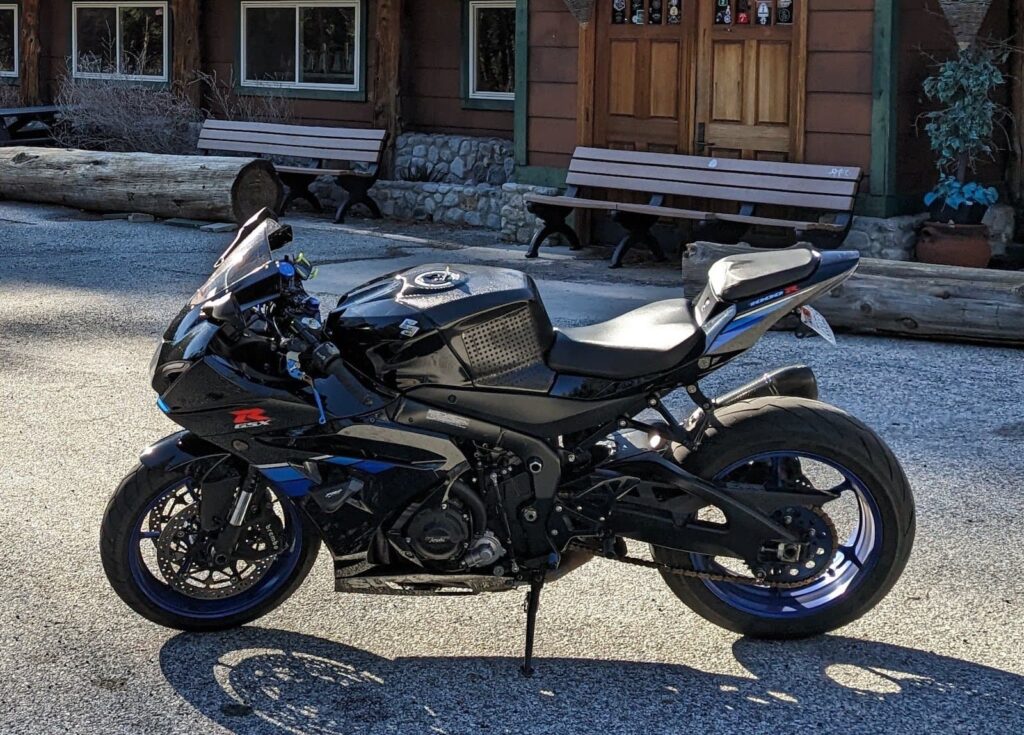
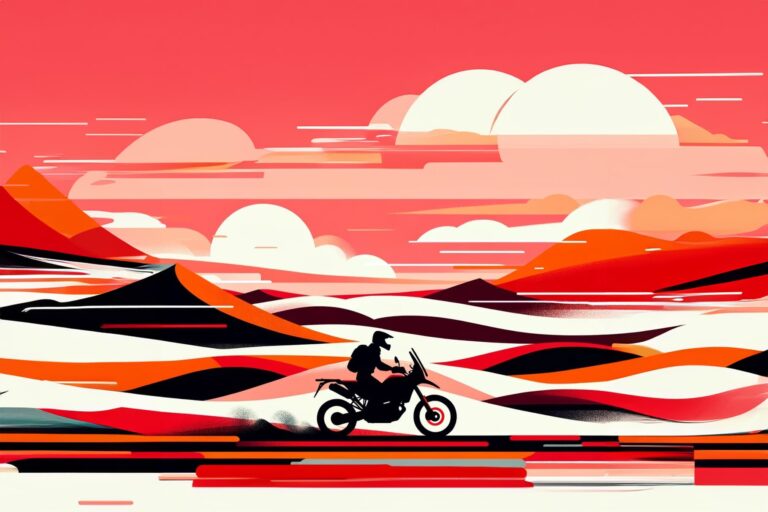
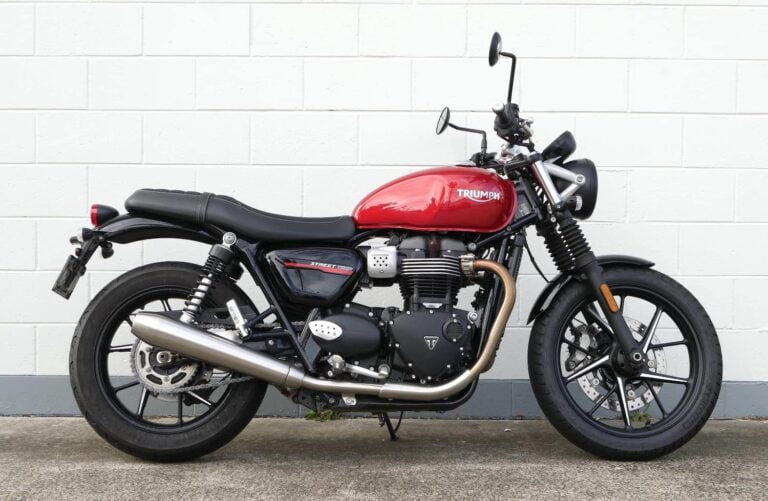
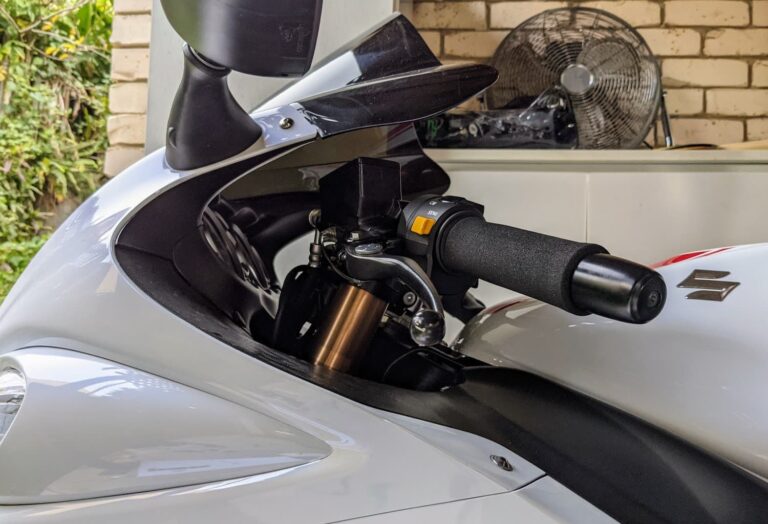
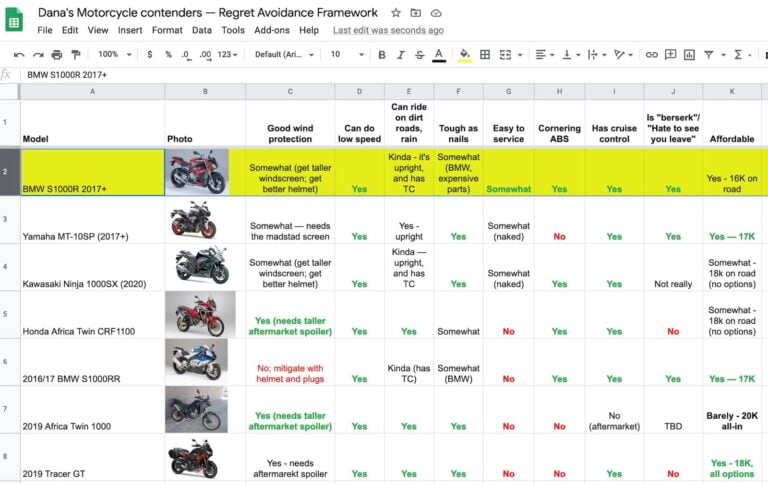
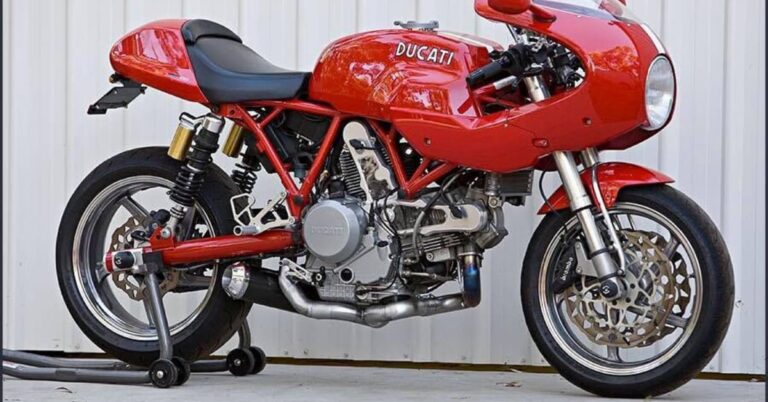
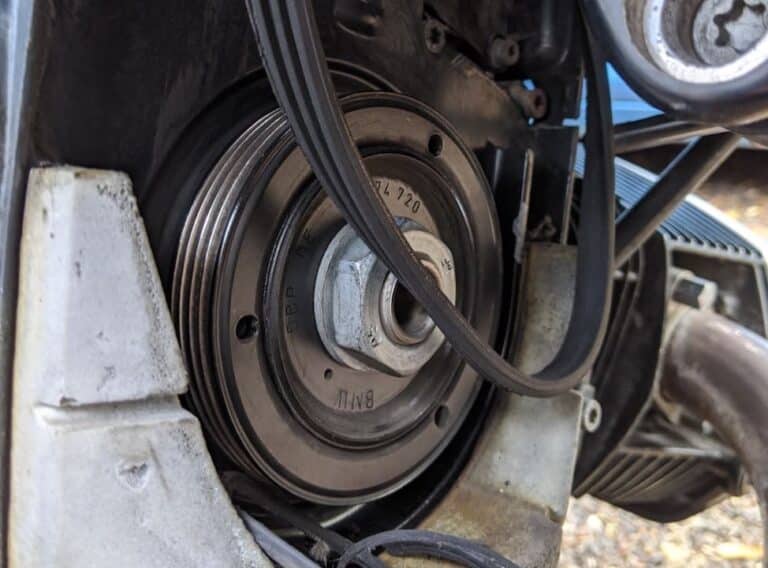
I own a 2001 honda vt1100c3. Areo. An. A Harley xlc 1200 sportster custom. Both are very different horses. Harley is a 2012. An iv had 19 bikes an will never buy another hog. Its like riding a new tractor. Junk. Very disappointed. Love the honda great cruising on an more reliable
81 Yrs. old, still riding. Still got 12 bikes of a mix. Lately my go to is my 2007 Honda 1100 Shadow Sabre. Awesome bike. Even got an 2005 Honda ST 1300 for my sport bike. Oh, and “You meet the nicest people on a Honda”. Had to remind folks.
Ha ha. You do meet the nicest people on a Honda. Even if you’re riding a Valkyrie Rune, I bet…
Why isn’t Ducati on there?
Mate, Ducati’s all over the page! Did you mean another brand?
If you like funny stories…. 2 years ago I stumbled onto and old 2000 Victory V92c (barn find). Everything was there,,, including the leather victory saddle bags. So I bought it and drug it home. After a few skinned knuckles new oil etc ,,, I was ready to crank it over. She came to life and I thought the pistons were going to fly out. Plus the clunk when I put it in gear was horrifying. So I called the Indian shop and asked if there was anyone there that knew about Victorys..there was,,,and so off I went.. I expained,,,,and the guy said,,that is exactly the way these older Victorys sound,,right down to the noisy transmission,,, it has been a fantastic ride,, I get so many it compliments and people stopping to look at . Well pleased with this little barn find
Now I have bikes . I sold my six others . Suzuki DR 650 , Yamaha FJR, Yamaha FZ1, Yamaha Stratoliner,and BMW R1200 GS. The last is a worst from day one. I do like Yamahas they all has been made in Japan, but don’t know anything about the newer models. I like to meet people on Honda while riding my Yamahas
I have owned five different brands of motorcycles and of all of them Honda was the best and Harleys were the worst. My favorite brand has been Triumph motorcycles. From one friend to another DO NOT buy a Harley!!!!
Hah thank you, friend! I do have my eye on some of the newer liquid-cooled ones. Looking forward to seeing how they fare.
After riding Japanese bike’s for year’s with no problems, I’ve now got three Euro bike’s (BMW, KTM, Triumph) in the last 6-yrs and so far so good. But I remember the Duc ST3 I had was just a money pit, the Ducs are better now. But I think it has been the Japanese that has made the Euro bike’s get better?
Speculation on my part, but engineers do move around, study competitor bikes, and learn from each other. In that sense it’s inevitable.
I think you nailed it when you mentioned different priorities. Manufacturer’s choices reflect what their audience want. Of course OEMs create brands and strategies to promote certain aspects of their offering, so it’s a cycle.
TBH, I don’t believe all these stats, I bet there are many people who would say Japanese bikes are more reliable that have never ridden one, and vice versa. Being a Ducati and KTM owner though, I can attest to a certain degree of unreliability for those two, although things are better than they were 10 years ago, and those changes take time to solidify on people’s minds.
What about Vespa scooters? (the old ones for sure). One of the most sold motorcycles ever. You even have a replacement wheel, no battery, etc. Almost imposible to get stuck!!!
The first thing that must be done is to compare the results with real world sales.
Honda and Yamaha are the market leaders and have the most votes. Likewise ‘Any Japanese Bike’. I would suggest many owners, whatever they own, have not actually owned anything else. After all, reliability is an important part of a major purchase like this.
I am 73 years old, still ride 10k miles or more a year, and currently own two triumphs and two Harleys. I have owned more than 30 bikes, mostly bmws. But also Ducati’s, kawasakis Suzukis and Hondas. My experience with Harleys has been great and I have found them to be very reliable. The problem for me these days is they are way too heavy. I think the best bike out there is the bmw r1250gs or gas. Maybe not most reliable, but pretty reliable. Here again heavy but 600lbs is better than 900lbs.
Japaneese e motorcycles are great but lack character. Peace.
What a refreshingly intelligently written article. Kudos! I’m a retired statistics and research professor and you have done a wonderful job of applying common sense to a normally wickedly abused form of reporting. Thank you for explaining how research and numbers are normally distorted beyond reason.
Thanks for your kind comment! Stats was my favourite subject, many years ago… It’s hard to do it justice, but I try.
I’ve had Yamaha, Honda, Kawasaki, Suzuki, KTM, Maico, MStar, ATK, Bultaco, and a CZ over my 52 years of riding. Mostly MX bikes I raced but a handful of Yamaha Street bikes. I worked in the parts and service world of motorcycles for 38 years. I have to say I overall Yamaha proved to be the most reliable Street bikes and KTM’s were very reliable motocross bikes. I never suffered a DNF on one over 6 years of racing them. Maico’s were by far the biggest problem bikes but also the best handling I ever rode.
Quite interesting. I’ll have to go find out more about Maico’s — outside my realm of knowledge.
I’ve been riding since I was 14. 5 Yamahas, 2 Nortons, 1 BSA, 2 Hondas, and 3 Harleys. Besides the old Nortons and the BSA leaks ( ahhh, those old British bikes), the only bikes that had multiple failures were the Harleys…every one of them. I love riding them but always have that thought in the back of my mind, ” Will I be pushing today?”. At 68 I really dislike playing mechanic on the roadside when I had planned on riding. My next bike will be a Honda.
Ha the 919! I have one and my data matches with yours!
It’s a bit hard to own old Japannese motorcycles, because Japanese makers don’t sell old parts. So I want Harley or BMW.
I have been riding for over 25 years, mostly on Triumphs. They’ve been very reliable. I got a 2004 Daytona 955i in 2007, and it had about 12,000 miles on it. I put over 50,000 miles on it, and handed it off to my son in law. It now has over 75,000 miles on it. I had to put an alternator in it once, and that’s all the repairs it’s ever needed. I also have a 2014 Scrambler and a 2022 Rocket 3r. Triumph has been extremely good to me. I suspect the newer ones (with ride modes, more computerized) might be a tiny step down from the older ones, but I’m not completely sure of that yet, it’s a hypothesis at this point. But if you want an incredibly reliable bike that also has great handling (I consider handling Triumph’s strongest point) and great character, get any 2000-2015 Triumph, especially if it’s fuel injected.
I also have a 2018 Roadmaster Classic. My wife customized it and surprised me with it for Christmas in 2017. She’s amazing. The bike has been fantastic. It’s got 24,000 miles on it, and all it’s needed was a new touchscreen replaced under warranty. Polaris has done an amazing job with Indian. I have total faith in Indian from my experience and from what I hear from other riders.
I’ve also got some Honda and Yamaha experience, both positive experiences, but I have far more miles on Triumph and Indian.
I recently got a Triumph Tiger Sport 1050, which has had the same motor (essentially) since the mid 2000s. I’m with you. It’s rock solid. Any “detuned” motor — or better, any motor based on a bigger-bore or longer-stroke one with its capacity reduced, AND detuned — will be super strong. At least the internals will be. Other bits (like fuel and water pumps) can fail, but that’s life.
I’ve never owned an Indian but my time will come. Glad you’re enjoying them. And that Daytona 955i — yow! A bike that still looks incredible (and, of course, goes like a bat outta hell). Your son in law is lucky!